


Ministry for mental health in the Black church
If someone has a diagnosable mental health condition, we cannot pray it away, just as we can’t pray away a heart attack or diabetes. We pray, and then we seek the help and support we need.

5 steps to create a mental health ministry
Talking about mental illness can be a taboo subject in the church, because people often shy away from what they don’t understand or deny that it even exists. However, it is imperative that the church becomes prepared to care for and love those in our community with mental health challenges.
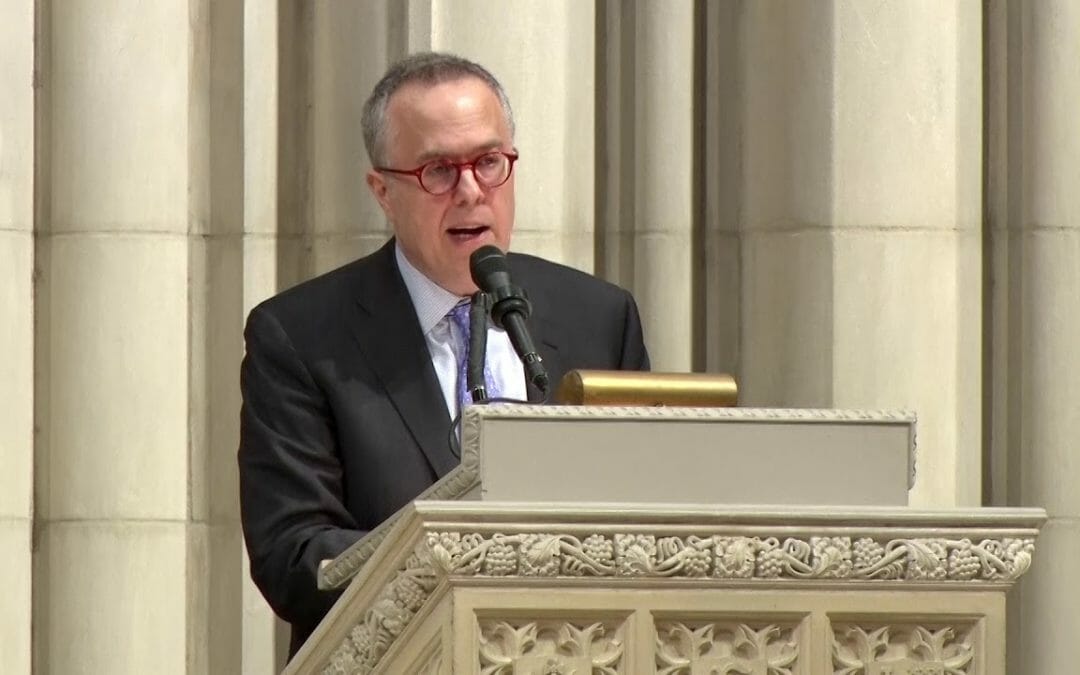
Faith, mental health, and the rumor of grace
One in five Americans annually experience mental health issues. Of this number, four in ten adults and just over half of children aged 8-15 receive appropriate care. Pastors can help address this disconnect between need and appropriate care by preaching and speaking about mental illness with directness and compassion from the pulpit.

The triumph of the quotidian—What making bread during the COVID-19 crisis taught me
For churches that are seeking to do ministry well in this unprecedented moment, the quotidian has emerged triumphant. The creation of community strains under too much initiative, too much planning, too much hustle and bustle. It thrives, like a sourdough starter, when given space to digest and share.

New wine, repurposed vessels
The church finds new wineskins in every generation and every culture. The essence of our faith holds firm; the wrappings forever change. We sing new words to old songs and fresh prayers to our ancient God.

Reframing questions for congregational health
Is the end goal of the great commission (Matthew 28:19-20) membership or discipleship? How might we think differently if we are inviting people to follow Jesus rather than focusing on adding members to the roles? We might look to the model of Jesus in creating disciples. Jesus met people in their everyday lives, doing their everyday things.

Make the Easter celebration last
Easter is worth a lot more than one day a year, in my book. The church calendar allots seven Sundays, not just one, leading up to Pentecost. Liturgical churches talk about the “Great 50 Days,” a season of 50 days from Easter Eve to Pentecost.

Exploring Holy Week with young children
Raising children in faith is one of the biggest responsibilities for faith educators — clergy, lay leaders, family members and others. Holy Week holds its own particular challenges with stories of Jesus’ life, ministry and crucifixion and themes of sin, betrayal, political machinations, death and resurrection. Such topics are difficult for adults to understand, let alone children.
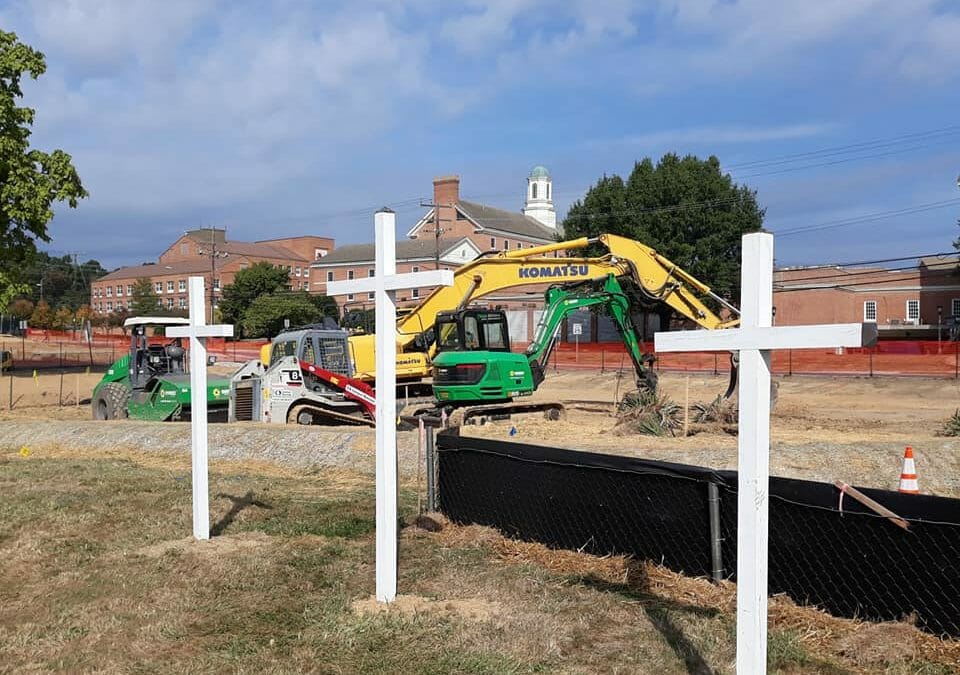
Leaving Jesus alone—Observing Holy Week amid a pandemic
This Holy Week, Christians find themselves scattered like the first disciples, each to their own homes. This is as it should be given the threat this pandemic poses. And yet, amid the fear and anxiety of whether we or our loved ones will become sick, amid difficult conversations with our children and others about worst case scenarios, amid the worry of our children over something so present yet so imperceptible as this dread virus—have we left Jesus alone?
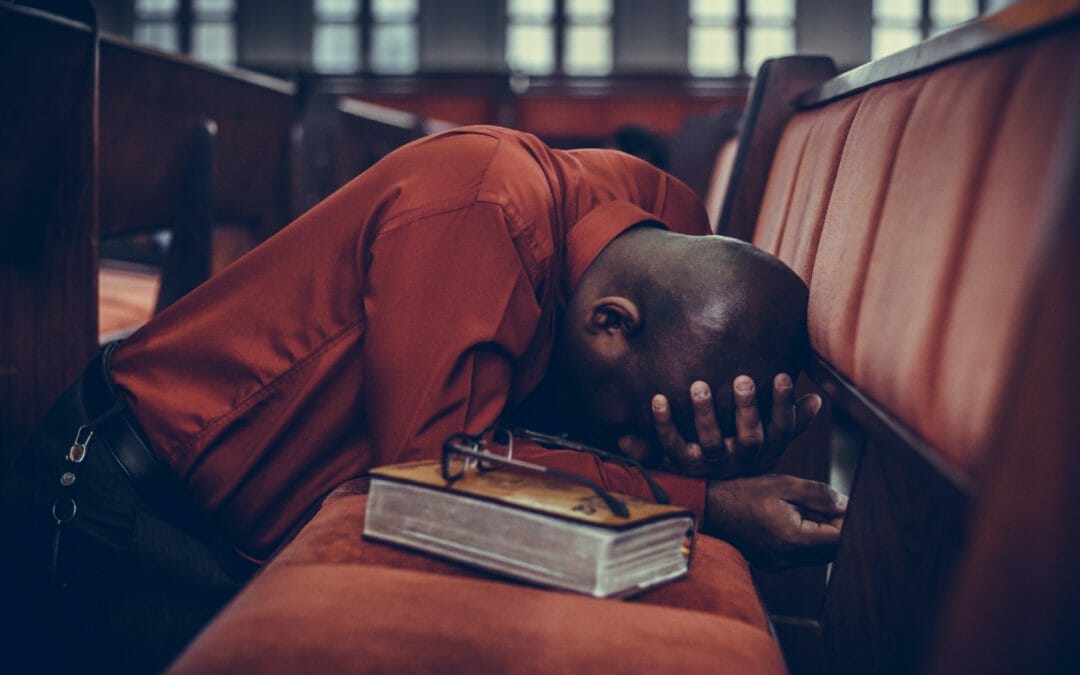
In times of crisis or disaster in the community, nation, or world—Selected worship resources from The New Manual of Worship
In order to be fully present and pastoral in the lives of our people, ministers and worship planners/leaders need to be ready to make changes in our plans when there is a disaster or tragedy in our midst.

By whose authority? Monday in Holy Week
Either Christ has dominion, or he does not. By what authority do any of us act? How do we pick our battles? Our choices, and how we elect to assert the reasons for them, say much about who we are and what we ultimately believe.

Coronavirus does not discriminate, a reminder we’re all in this together, but faith can help
Who could have imagined that great nations like Italy, and possibly France and Spain, as well, would be on nationwide lockdown? From China to the United States to Europe and everywhere else on Earth, we are being reminded that, while we have great wealth and great wisdom, there are some moments when we are at the mercy of Nature and must yield to its awesome and sometimes terrifying power.

Be the least anxious person in the (virtual) room
It’s impossible to be in a climate like this and not be affected by the anxiety swirling around. What’s a leader to do? You can’t manage other people’s anxiety for them, but you can work on your own.

Our national homework assignment—Beginning to envision a just and inclusive society
Followers of Jesus should use this standstill in our nation to raise questions that must come prior to returning to business as usual; questions regarding the welfare of millions of people whose extreme existential vulnerabilities are now exposed in the areas of income inequality, lack of wage protection, access to food, housing, healthcare and technology access.

Churches, never waste a (coronavirus) crisis
During the coronavirus crisis, churches must resist the urge to make panicked decisions, and instead prayerfully and faithfully lead others through new challenges.
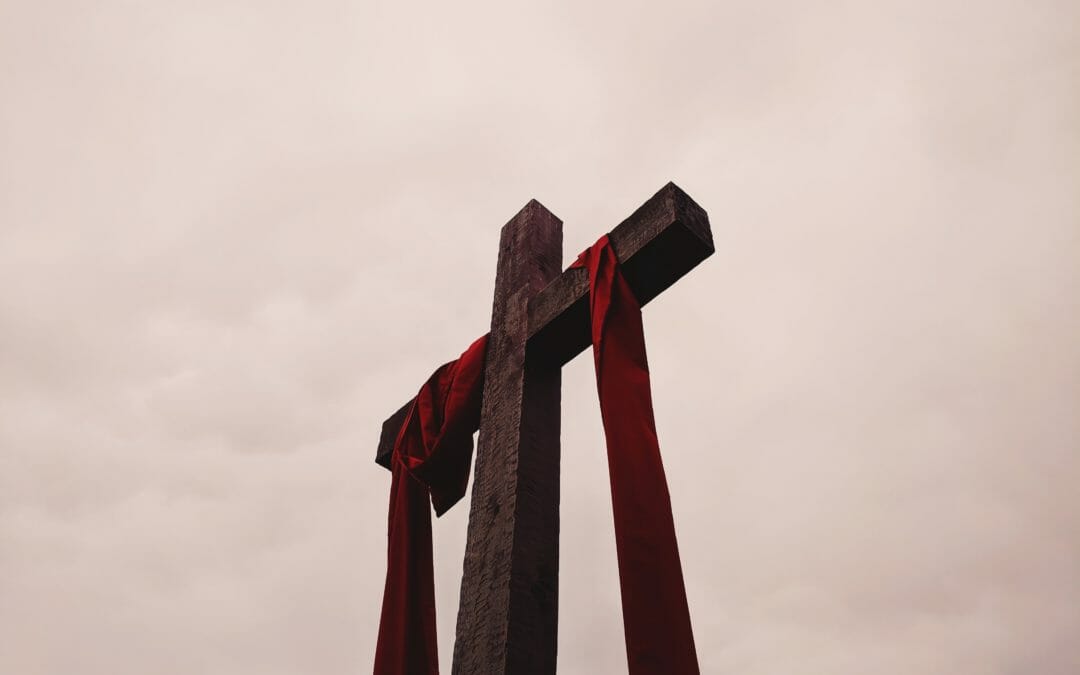
Celebrating Easter in a Good Friday world
This Easter many Christians, perhaps most, will gather as the earliest Christians did—in homes. Unlike those early Christians, they will do so as individual families connected, if at all, through online platforms and streaming services. Like those who preceded them in the faith, they will break bread and praise God as the church has done through the ages—amid war, peace, famine, plenty, pandemic, plague, freedom, oppression.

Jesus Wasn’t Killed by the Jews: Reflections for Christians in Lent (Book review)
The Lenten season and Holy Week recall gospel lessons and other passages of Scripture appropriate to the season, yet we need to ask if we read these sacred texts of “Old” and “New” Testaments with awareness of the history that has unfolded over the past two millennia.

“The Lord is the stronghold of my life”—a meditation on Psalm 27 amid the COVID-19 pandemic
Though far removed from us in time, a shepherd boy destined to be king, struggled with fears as terrible as our own while he hid from the peril of death at the hands of Saul’s soldiers. Perhaps it was in the darkness of a cave where he had fled, breathless with fear as armed men closed in upon him, that Psalm 27 began to form in his heart, “The Lord is my light and my salvation; whom shall I fear? The Lord is the stronghold of my life; of whom shall I be afraid?”

Living between trapezes—waiting out the coronavirus pandemic
We are waiting. We are in uncharted territory, our entire planet trapped between ordinary life and sheltering in place because of the coronavirus. It feels like we are living between trapezes. Having let go the secure bar of the first trapeze, we hang in mid-air, awaiting the arrival of the next. The next bar is not in sight.

God is not sheltered-in-place
Every day, God bursts forth in our world. From sheltered-in-place residents singing to each other across balconies in Italy, to Canadians “caremongering” for those in need, to two young cellists who gave a concert on an elderly woman’s porch so that she could enjoy the music while homebound, evidence of God’s presence through human kindness is everywhere.

Can anything good come from Nazareth? A COVID-19 report from Kirkland, Washington
I see more adults sitting on their front porches now, a result of the mandated social distancing. They wave or speak. People continue checking on their neighbors, volunteering to retrieve groceries or medicine. During the enforcement of this social distancing, some are embracing the concept of a healthy togetherness.
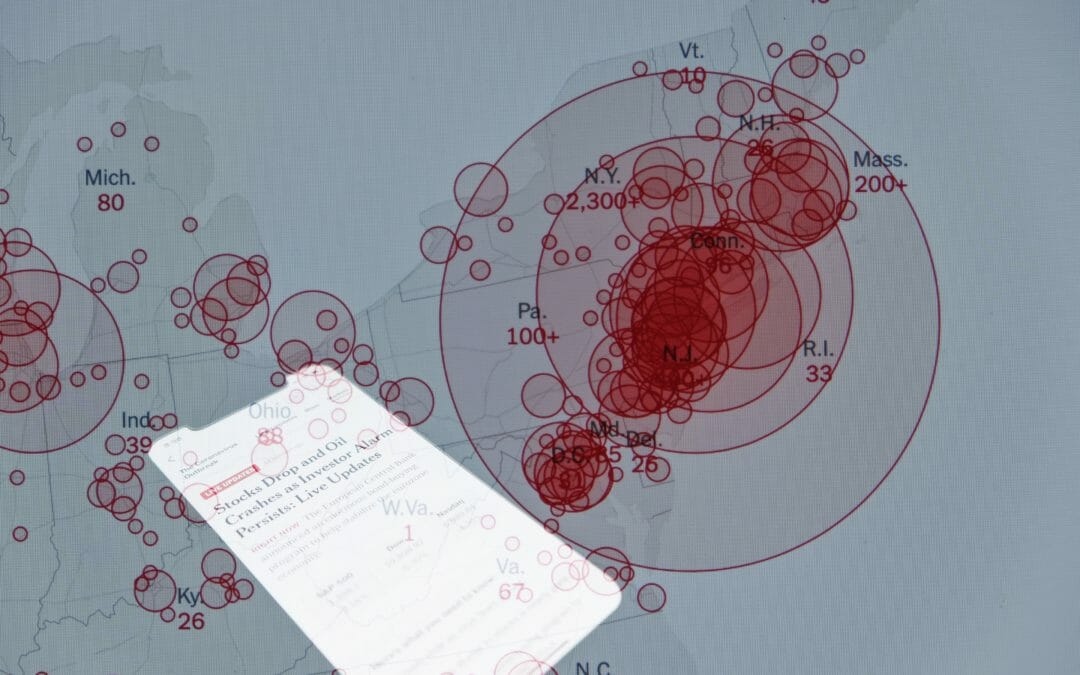
Lessons amid a disaster—an open letter to my colleagues in ministry
The coronavirus pandemic is a disaster. It has begun slowly but it is building exponentially and more than likely its devastation will be experienced on multiple levels for years to come. It will bring waves of individual and communal trauma that will reverberate within and beyond your own ministry.
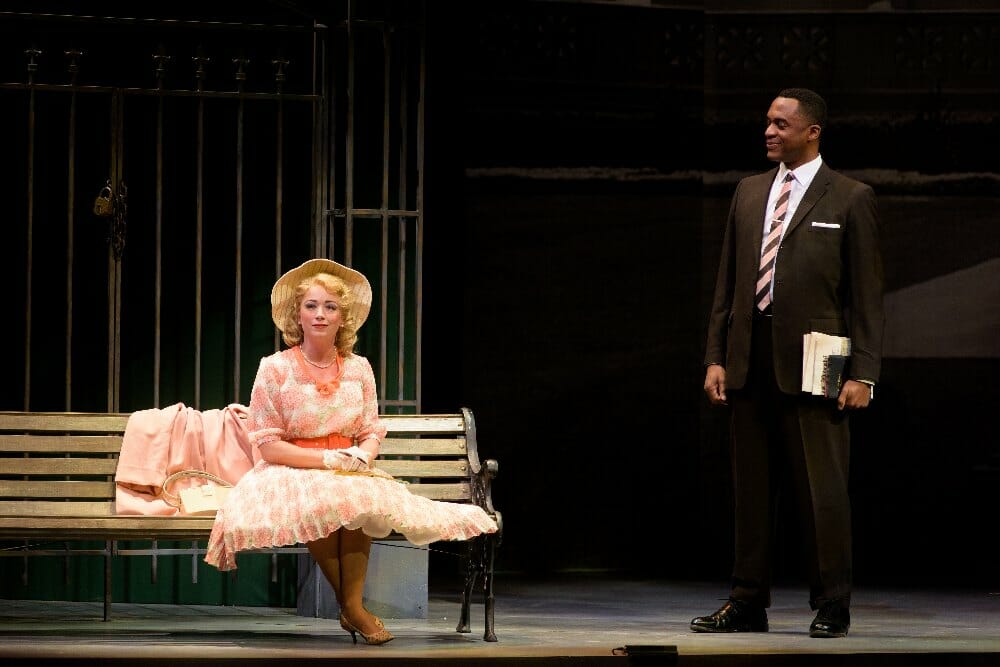
“Alabama Story”—Recent play tells the story of librarian Emily Wheelock Reed, her strength, fortitude in the face of misunderstanding, intolerance
Kenneth Jones’ recent play “Alabama Story,” set in Montgomery in 1959, reminds us to remember the past and live for a different future.
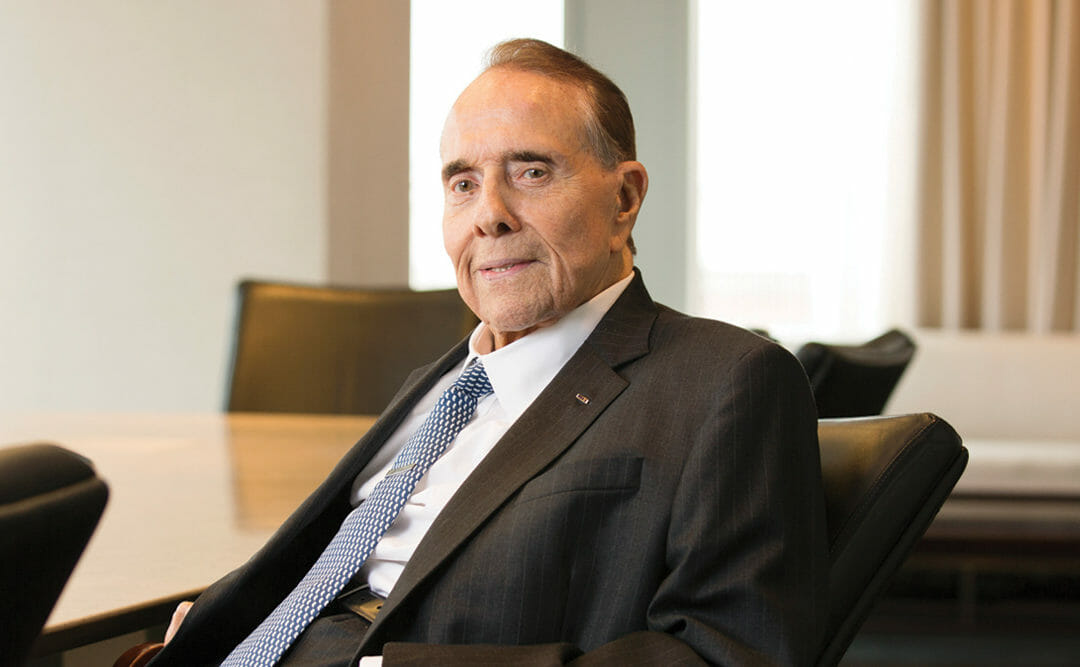
“None of us walks the path of life alone”—Sen. Robert Dole’s message to the disability community is what we all need right now
“We all face challenges in life – some have a tougher road than others,” Dole wrote in a letter for the occasion of receiving the American Association of People with Disabilities’ Lifetime Impact Award. “But what sets us apart is how each one of us chooses to handle those challenges. Our resilience. I’ve faced a few bumps in the road throughout my life, but I’ve always tried to maintain a sense of optimism – looking ahead at brighter days to come.”

Rethinking the injustice of Native American cultural appropriation: mascots, tomahawk chops, and superfluous DNA testing
I propose that the problem of Native American cultural appropriation is not about political correctness, as some have suggested. It is about kindness, compassion, and respect, things that, as I understand them, the Lord God would have us emulate.

Influence others like Eleanor Roosevelt
Eleanor Roosevelt’s story is compelling. And her own words and example are inspirational and challenging. Here are three ways that we can lead as she did, with her own words to reinforce them.

There is enough: Financial practice as spiritual practice
I’ve been compiling some of my “financial practice as spiritual practice” ideas, questions, and challenges, and I offer them here to begin a conversation with those who feel similarly called to this deep and life-changing work.

How the disability community can respond to COVID-19: Ensuring people with disabilities can access prescription drugs during the current crisis
Disrupting treatment always endangers patients, but even more so in a pandemic. COVID-19 is expected to heavily tax the resources of the health care system.

African American women: The key to the future of America
African American women learned that education was the means for advancement. Through oppression, they recognized the inclusivity of all as a requirement. Embracing unity, they realized that the target of their efforts had to be the community. And girded by faith, African American women looked to God for perseverance.

Spiritual first aid for pandemic stress
People of faith possess a deep reservoir of spiritual resources for facing difficult times. When the news flashes at us faster than we can assimilate it, we are well-served to be reminded of the foundations of our trust in God.

“When in doubt, meet me at the table”
There is much we can, do, and should disagree about. But the greatest heresy is not what that brother or sister across the table believes. The greatest form of heresy is when I insist that the Head of the table disinvite them, or when I leave because they are there. When in doubt, meet me at the table.

5 practices to live by in this uncertain, wilderness time
Our mortality is assured, but so too is our resurrection. So, we will live with the sure hope that Easter will redeem all plagues. To practice resurrection means that even though we occasionally despair, we are always looking for hope through the grace and mercy of God.

Planning for ministry during COVID-19
Some tips and practices for planning worship and pastoral care during COVID-19.

Spiritual practices for a time such as this
In light of the outbreak of COVID-19 we, along with some of our American Baptist Chaplains and Pastoral Counselors, have been sharing best practices to encourage those we care for in these times.
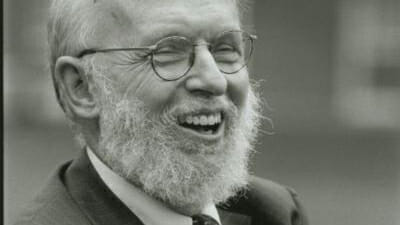
Welcome to the Choir (1 Corinthians 14:6-19)
Those of us who love the life of the mind are often reminded quite simply to rejoice, and those of us who love all kinds of melody are reminded that sometimes the words we speak and sing mean something, too.
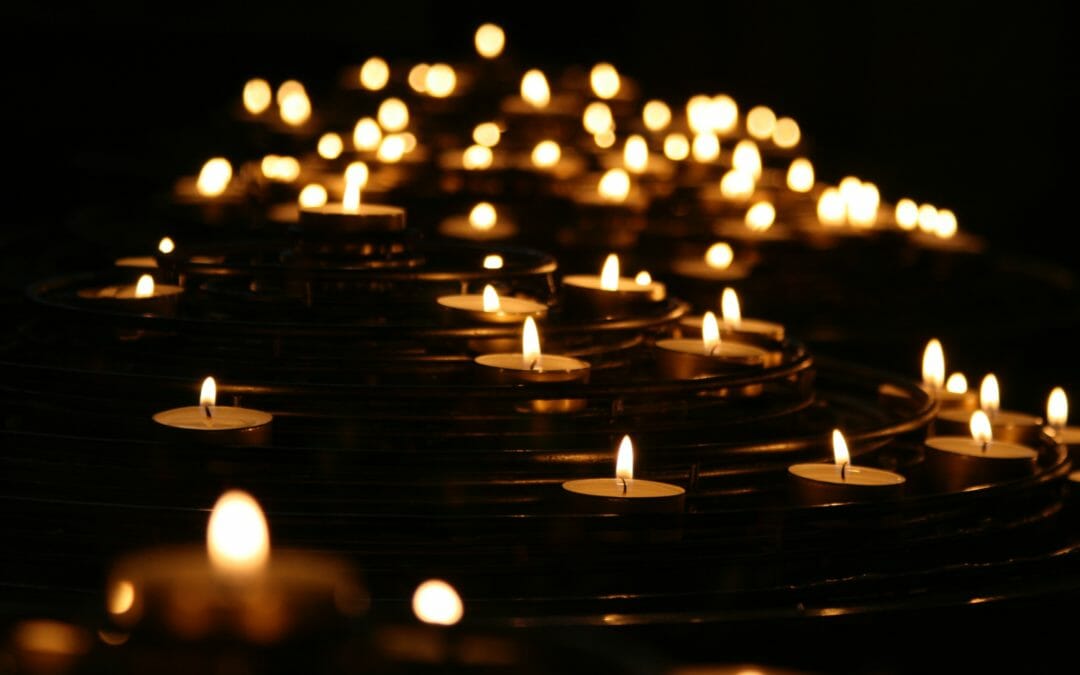
A prayer during the coronavirus pandemic
Lord, in this time of anxiety, fear, and isolation, we come to you for support, encouragement, and direction. We lay our worried minds and troubled souls before you and in your care.

Getting in the same boat—establishing a new civic covenant
No single leader, organization or group can achieve a community’s goals on their own. We need each other. We must be in the same boat.
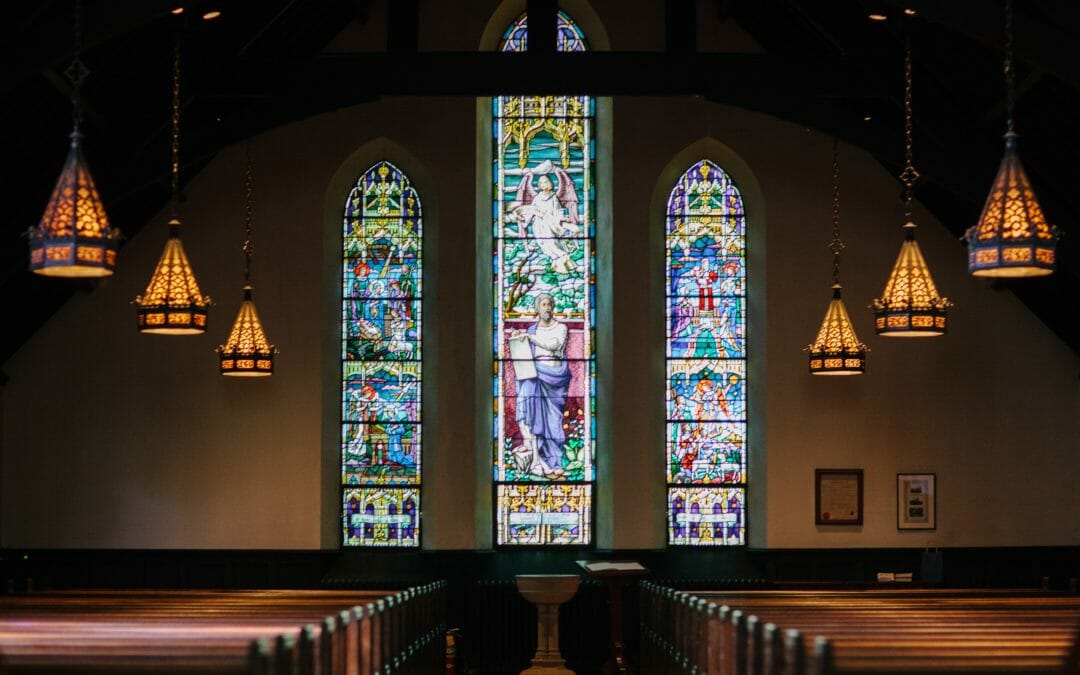
Ministry in the midst of a COVID-19 outbreak
We are in an uncertain time, a liminal space. Perhaps it is not so much a dystopia as living into the reality of Lent this season—wandering in the wilderness of a COVID-19 outbreak.
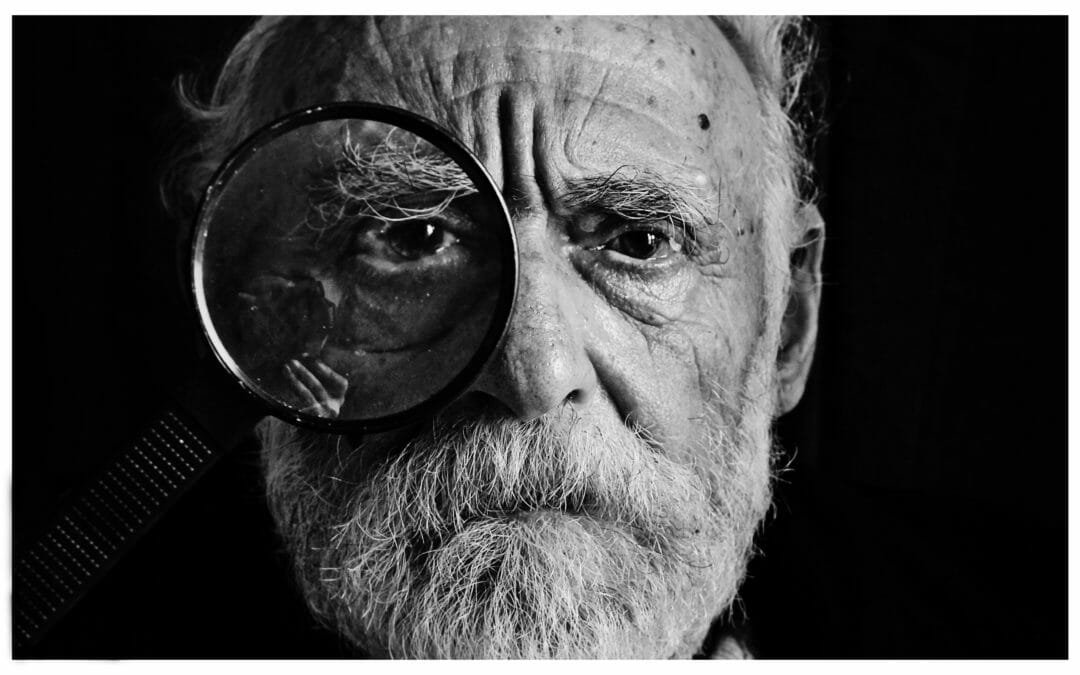
Tough questions from curious Christians—searching for truth during Lent
May we – clergy, Christian educators, and leaders of the church – encourage the pondering of curious questions about the most challenging of subjects, especially at Eastertide.
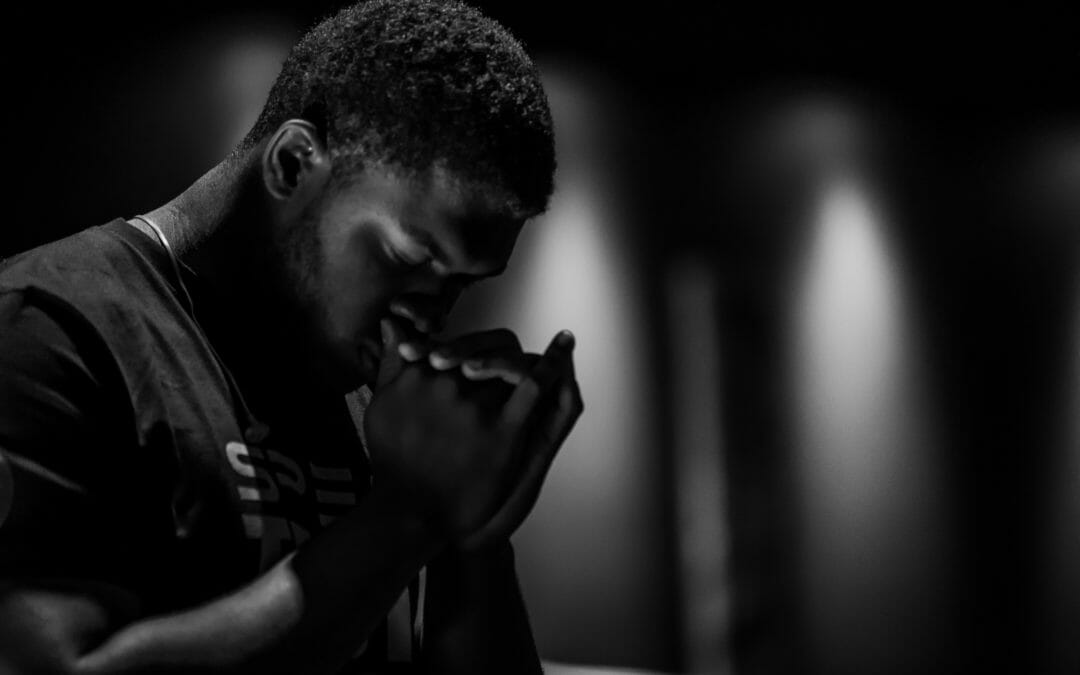
Fit to fight—developing spiritual fitness during the season of Lent
To be fit to fight spiritually involves spiritual disciplines that equip, edify, and encourage when the days are dark, and life becomes difficult. During the season of Lent, fasting and praying are spiritual practices that facilitate spiritual fitness.

Hand washing, hoarding and the healing of Naaman
Healing and wholeness are found in washing in the muddy rivers of our own lives. They are found in everyday practices that align our resources with God’s values.

Lent embodied
As we enter the season of Lent, imagine with me that we might actually live Lent in our very bodies, and not just think about it.
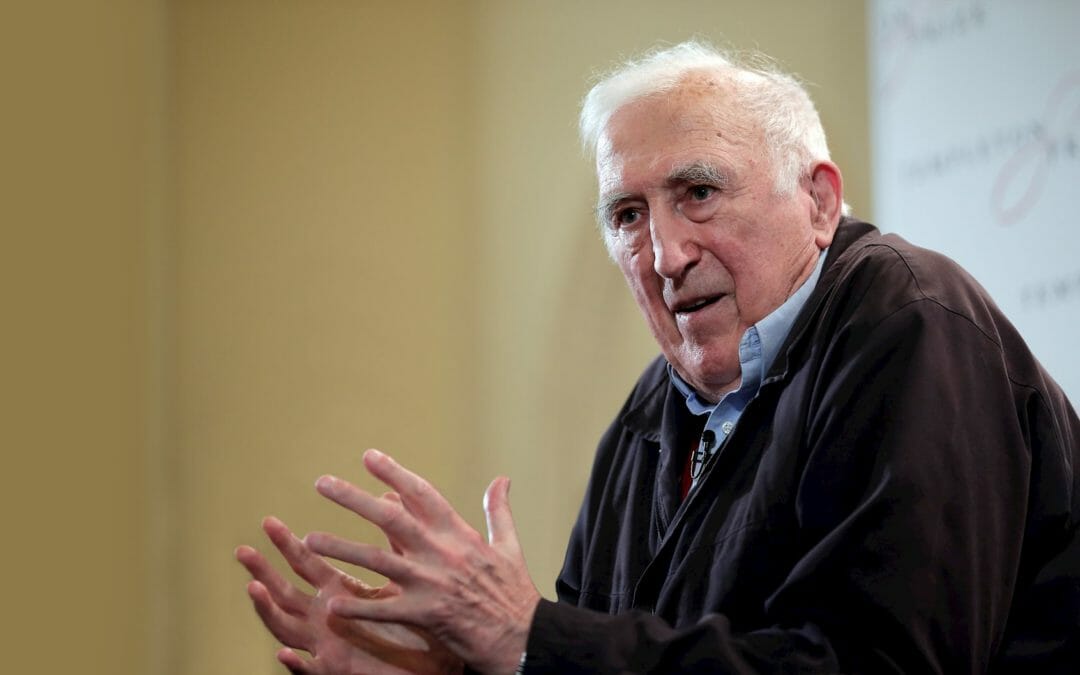
De-canonization: Reflections on the discovery of abuse by Jean Vanier
If Jean Vanier did not recognize the connection between his own wounds/sins and what he did and taught, that is yet more evidence of the far too human capacity for self-deception. If he did, then the tragedy is that he did not come clean, be open, repent, ask for forgiveness, and look for his own healing more honestly. Vanier has left that responsibility to his greatest contribution and legacy, the L’Arche community. The tragic irony is that in their commitment to the soul of L’Arche, they knew they had to be perfectly honest and transparent about the brokenness of their beloved leader and the mentor to so many of us.

Charity amidst the chaos—when coronavirus comes to your neighborhood
Instead of fighting over the last roll of paper towels or loaf of bread, we are probably better served checking in with our neighbors, doing what we can not to spread the virus to others—living out an ethic of care.

What are you willing to give up during Lent?
Traditionally, the Lenten season requires “giving up” and “letting go” of something in order to replace it with that which is far more enriching, edifying, and inspirational.

Think like a redwood tree
In the middle of anxiety-producing breaking news, big trees remind us there’s a longer time frame than our day-to-day life. Ancient trees have survived it all.

Facing rejection in the purple season
During Lent, consider how Jesus was rejected. Many have felt the pain of rejection. Even if the feelings never go away, you can learn to manage your feelings. There are attitudes you can adopt and actions you can take.

Fat Tuesday and counterfeit spirituality
Far more than mere fasting from one’s favorite indulgences, the traditional purpose of Lent is the ritual preparation and spiritual rededication of the believer and the church to their purpose in the world. The distortion of sacred rituals to serve self-indulgent and superficial displays of piety is not new.
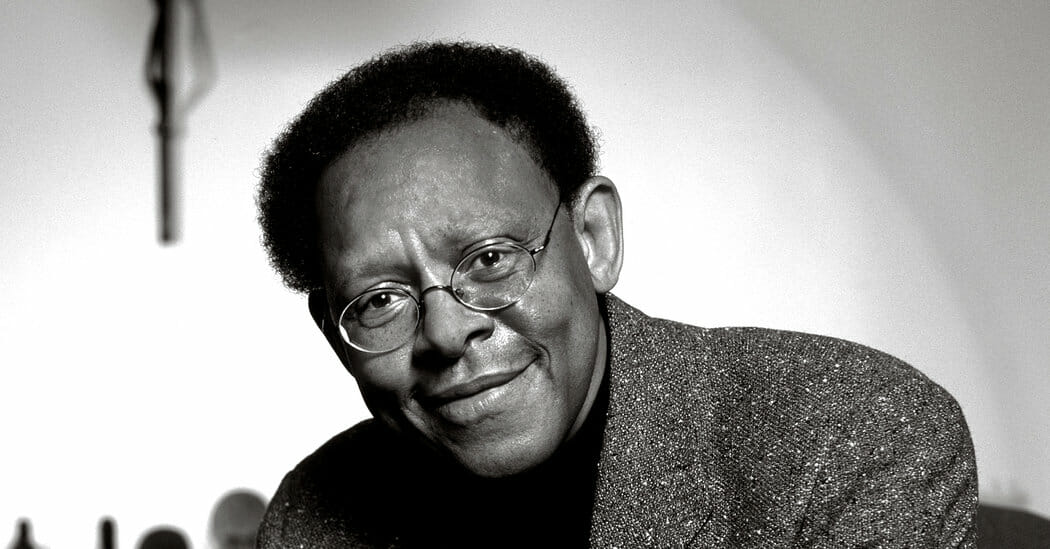
To set the captives free—encountering God in the struggle for freedom
Fifty years after the emergence of Black Theology, some white, conservative evangelical Christians still fail to or refuse to see the connection between the message of the gospel and the freedom struggle for black people in the United States.
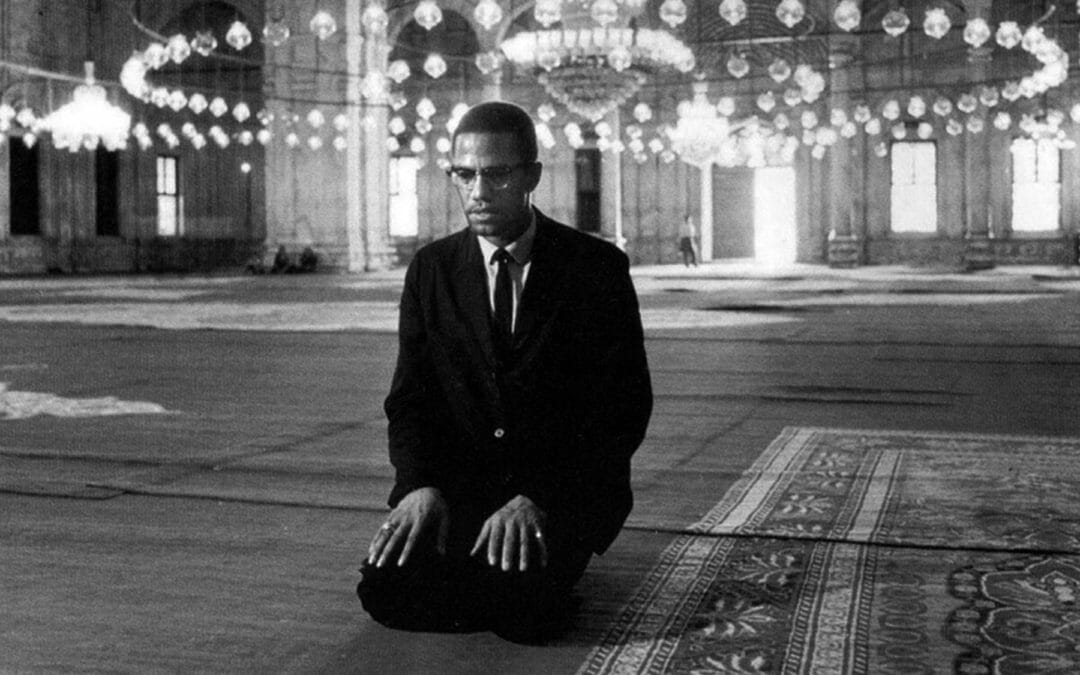
Radical resister, Malcolm X: The man, minister, Mecca
When you look at the life of Malcolm X, you will readily notice that he did not shy away from challenges or controversy. He did not necessarily seek them out, but they were the byproduct of the work that he was involved in. This speaks volumes of Malcolm’s character and his passion.
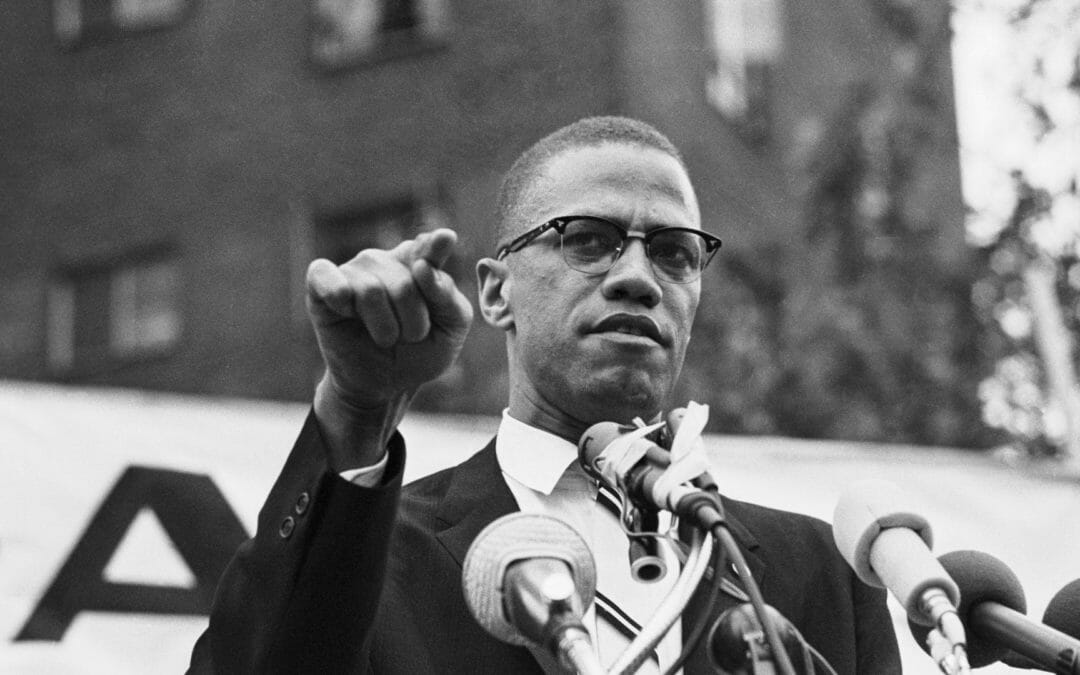
Black liberation theology and Malcolm X: An unwelcomed voice
Malcolm X may have been an unwanted voice, his message may have been difficult to hear, and his critique may have caused many to shy away; however, those who took the time to listen heard the truth.

Beyond the funeral, life with the 23rd Psalm
Scholar of the Psalms J. Clinton McCann suggests that the 23rd Psalm “be read and heard as a psalm about living,” placing the wisdom of the psalm squarely in the day-to-day world that we inhabit rather than the promises of a world yet to come.

The future of ministry leadership is not “in” seminary
The future of ministry is not going to be found in the traditional 90-credit seminary degree, but in modified virtual centers of learning.

Paths to the future of vocation?
Bivocational ministry may well be the wave of the future – but only if we can really prepare our people and institutions for this reality.

Mandate from heaven? A brief primer in political theology
Does God care about who Christians vote for and does God endorse certain candidates? Is there a “mandate from heaven” directing certain individuals into certain offices?
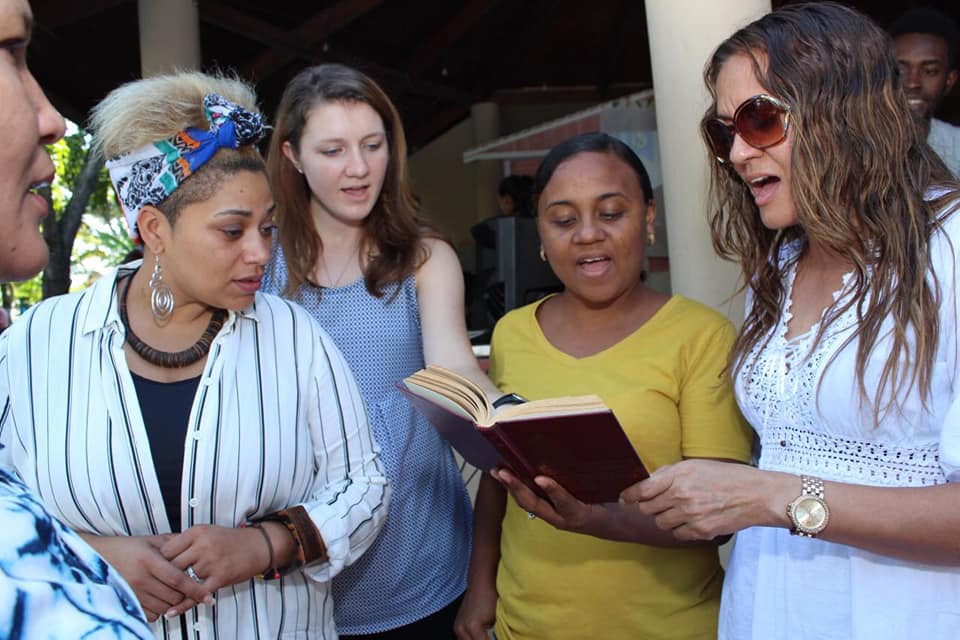
Intentional multicultural ministry
With worship in three different languages (Spanish, English, and Haitian Creole), poor and affluent members, locals and visitors all participating by serving their immediate community, Iglesia Comunidad Multicultural (ICM) is a vibrant and unique place in the Dominican Republic.
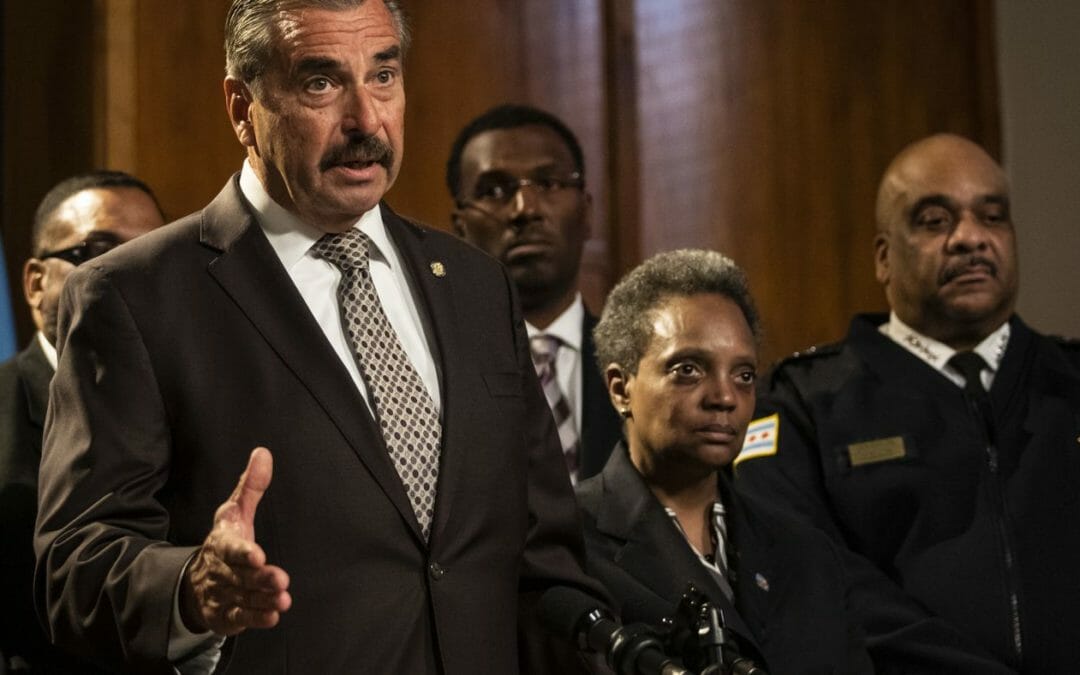
Collective efficacy—working with a common purpose for the good of all
Our efficacy comes as we understand and engage the systems of evil. It includes confronting the government and the police when they fail to behave in trustworthy and effective ways. And it includes working with them when they succeed.
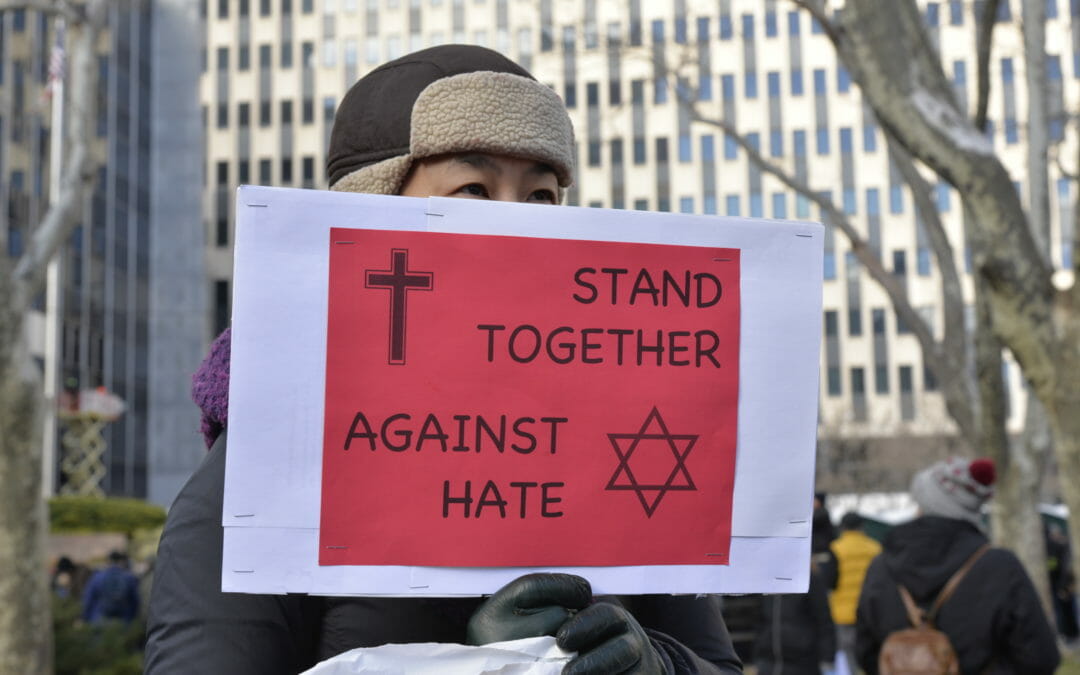
5 ways your church can address anti-Semitism
How can we address this distressing upsurge in anti-Semitic prejudice and violence? Here are 5 practical ways for churches and individuals to make a difference.

Black history and the Negro problem
If we cannot teach slavery, which was irrefutably core to our history, how will we ever teach or face this country’s racist past? And if we cannot face our racism, how will we ever dismantle white privilege and the persistent beliefs that stem from it?
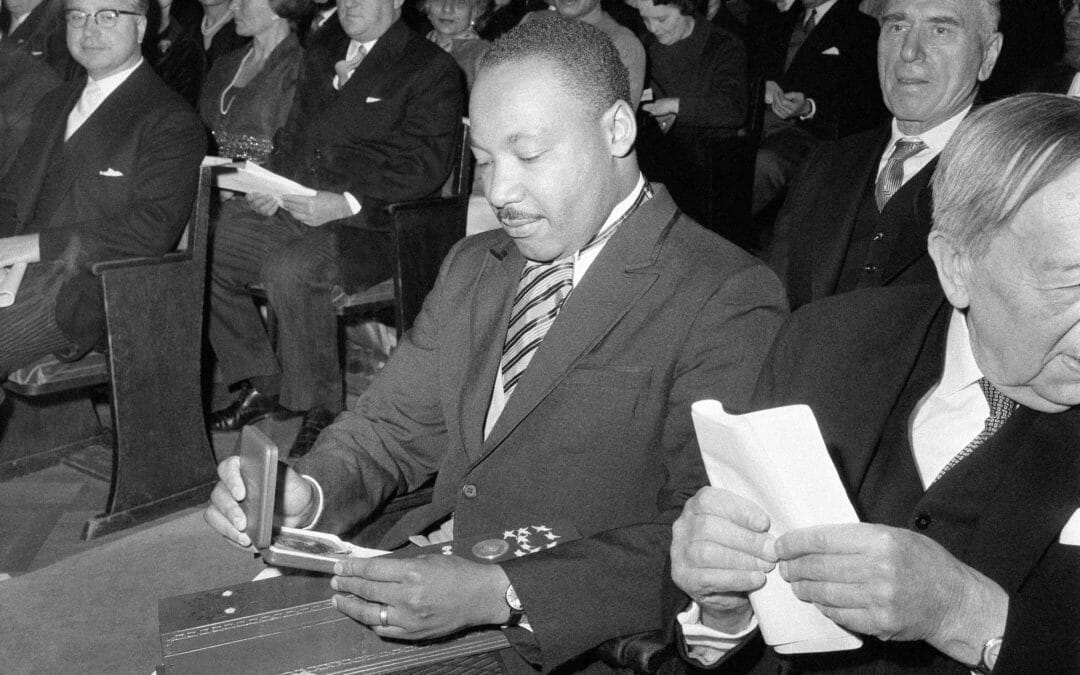
“Re-Learning” King—New Baptist Covenant Bible studies highlight insights and connections to contemporary issues
We believe that it is important to both keep Dr. King’s “prophetic voice” in the forefront of the struggle for racial and social justice and reconciliation, and to remind people that his message and work were firmly grounded in Scripture and the gospel of Jesus Christ. We want to encourage individuals and congregations to honor Dr. King’s legacy by doing the same.

The #MeToo Reckoning
Ruth Everhart courageously shares her experiences and others in “The #MeToo Reckoning: Facing the Church’s Complicity in Sexual Abuse and Misconduct.” Everhart weaves in her story, the stories of other victims, and stories from Scripture of abuse and assault. She lifts up women’s and children’s voices who have often been silenced, concluding each chapter with questions of what the text asks us, and what her own hope is for the church.

The yin and yang of social activism and spiritual centeredness
Social activism and spirituality are both well-served when what is wrought in the one is woven into the fabric of the other.

Slow cooking as a spiritual exercise
If we can find God in our shared meals, perhaps there is space to find God in the preparation of those meals if we take the time.
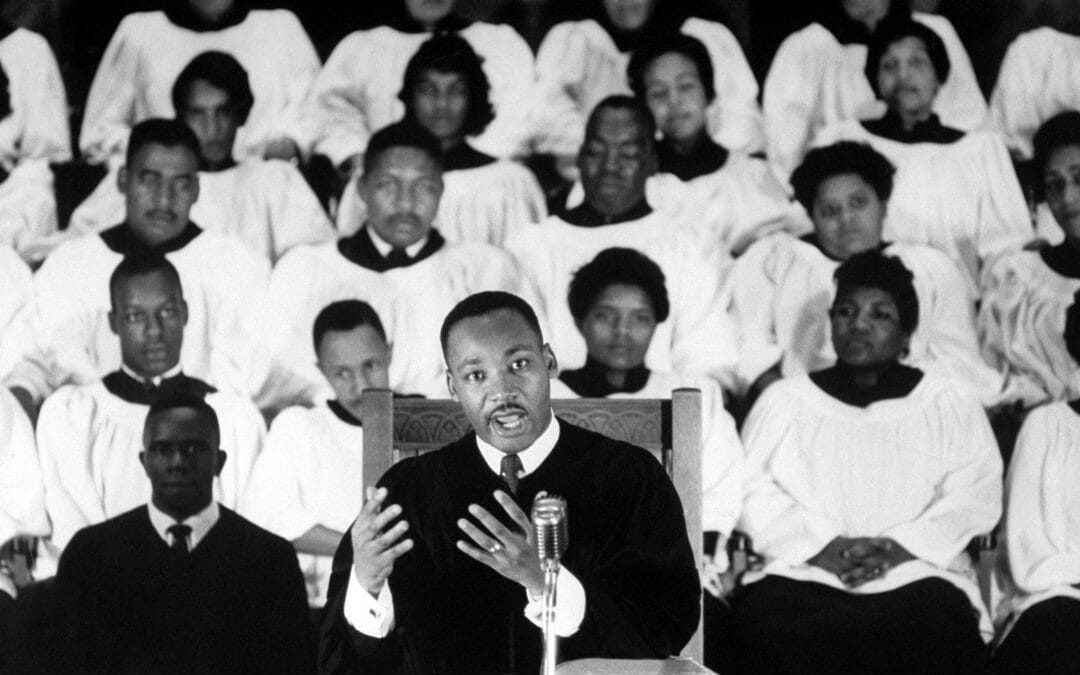
Shepherd your ‘little church’ as thermostat to alter society
Today, I pray for a grand emergence of a new generation of radically Christian and socially subversive parents who will shepherd their little church faithfully and unabashedly.
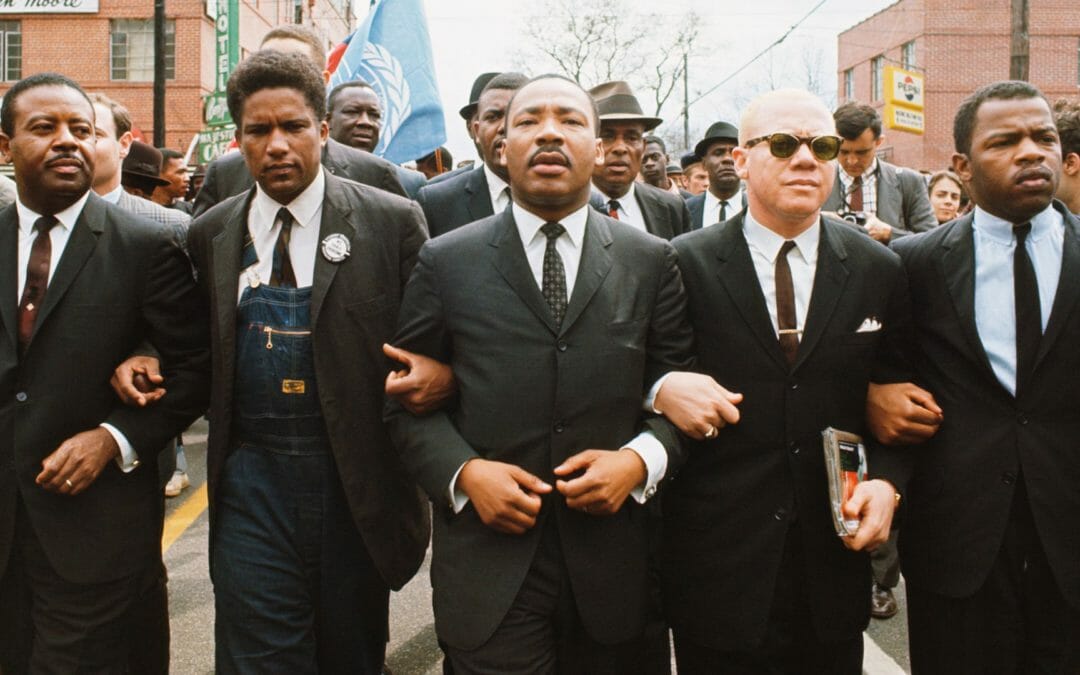
From the Civil Rights era to the fight for human rights for all—commemorating the life and walk of Martin Luther King, Jr.
We all have a purpose, to fight for that which is right, with the tools and gifts and opportunities we are given. May this year’s commemoration of the life and walk of Dr. King bring you closer to that walk with God, for in God we live, move and have our very being. And until all of us are free, none of us are free.
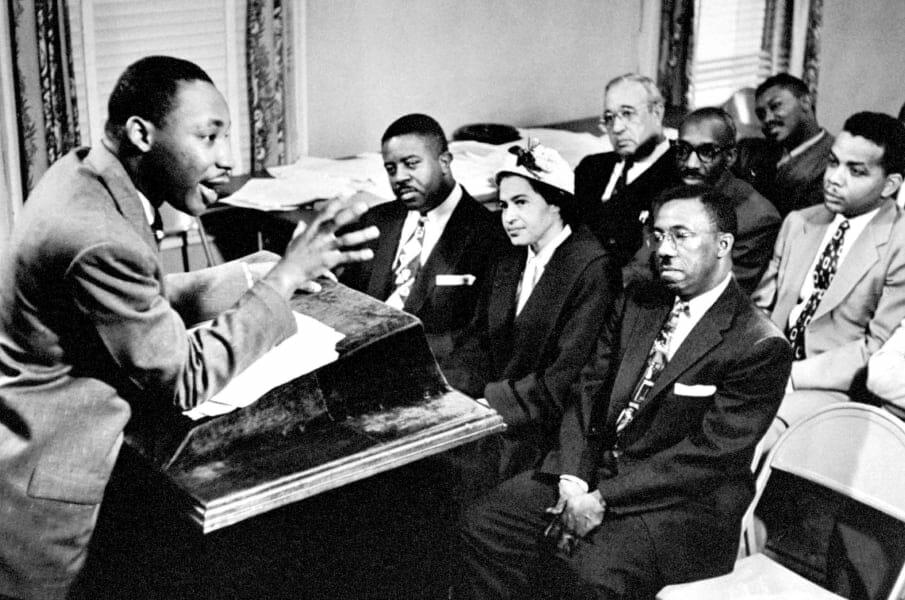
The risky dream of leadership
Like Martin Luther King, leaders need to be willing to take a risk and define themselves to those they lead: “Here’s what I believe. Here’s where I stand. Here’s where I’m heading.”
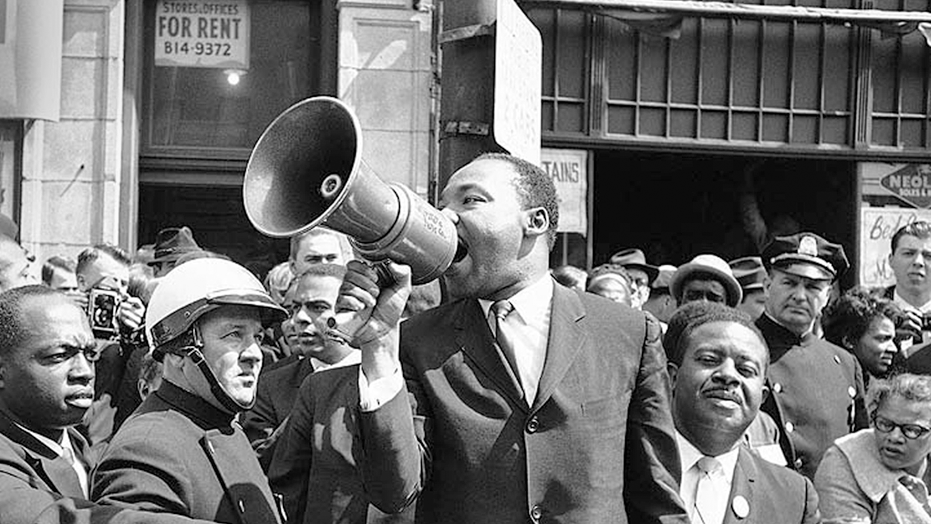
“Where do we go from here: Chaos or Community?” Martin Luther King, Jr.’s prophetic question waits for a response
While the voices of the biblical prophets spoke to a nation of people in a particular moment, their words echo through history and speak to a world very different from their own. In the same fashion, we hear Martin Luther King Jr.’s prophetic voice today.
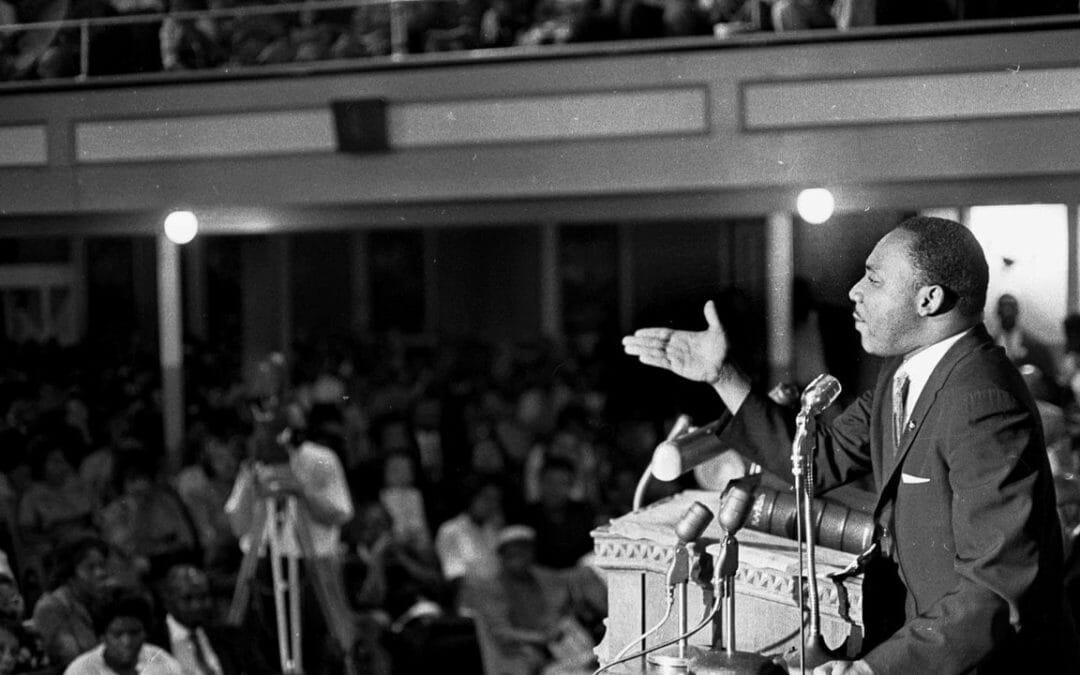
Knowing where you are in time—Martin Luther King’s allegiance to the empire of eternity
As he prepared to be installed in his first pastorate, Martin Luther King said to his faithful flock, “Remember Christian friends we are now in the colony of time, but our ultimate allegiance is to the empire of eternity.”

The power of personalism
The God who created humanity as good is the basis from which we can assert the infinite value of human personality. Therefore, we affirm God’s assertion of humanity as good by promoting and esteeming the infinite value of humanity.

A day on, not a day off—honoring and extending the legacy of Martin Luther King, Jr.
Together, lets develop a dangerous unselfishness that honors and extends the legacy of Dr. King.

The constant grace of God
Whether 2020 marks some great milestone in your life or whether it is just another year, hold on to the constant which is God and the grace that God offers.

“God bless all of you, all of you on the good earth”—Remembering Apollo 8’s Christmas at the Moon.
Have we lost sight of the goodness of Earth, this remarkable, fragile, sanctuary that teems with life and possibility amid the cold, indifferent, expanse of space? Have we lost sight of the remarkable gift of life that is ours to enjoy, however fleetingly, amid the immeasurably vast expanse of time and space?
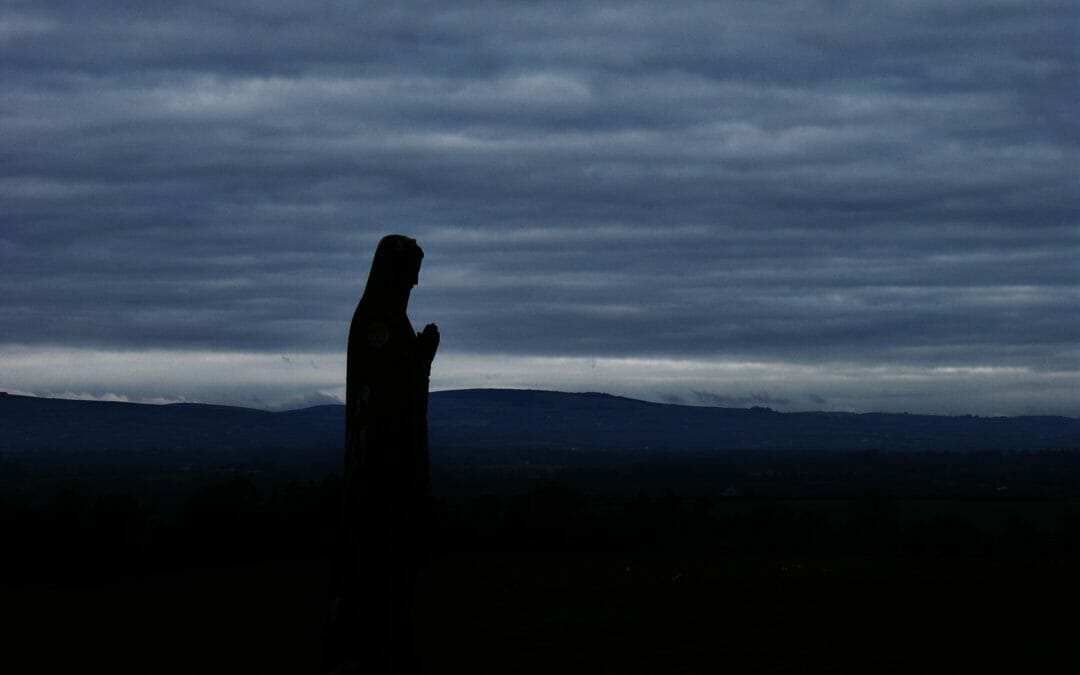
Awakening: Mary’s Vision
You tap me on the shoulder
Of my soul
And wake me from
A deep sleep.
“Who are You?” I ask.
You say,
“I am Gabriel…”

Readers Write: Fear
We asked readers to submit brief reflections on words associated with Advent. Here is a response on the word “fear.”
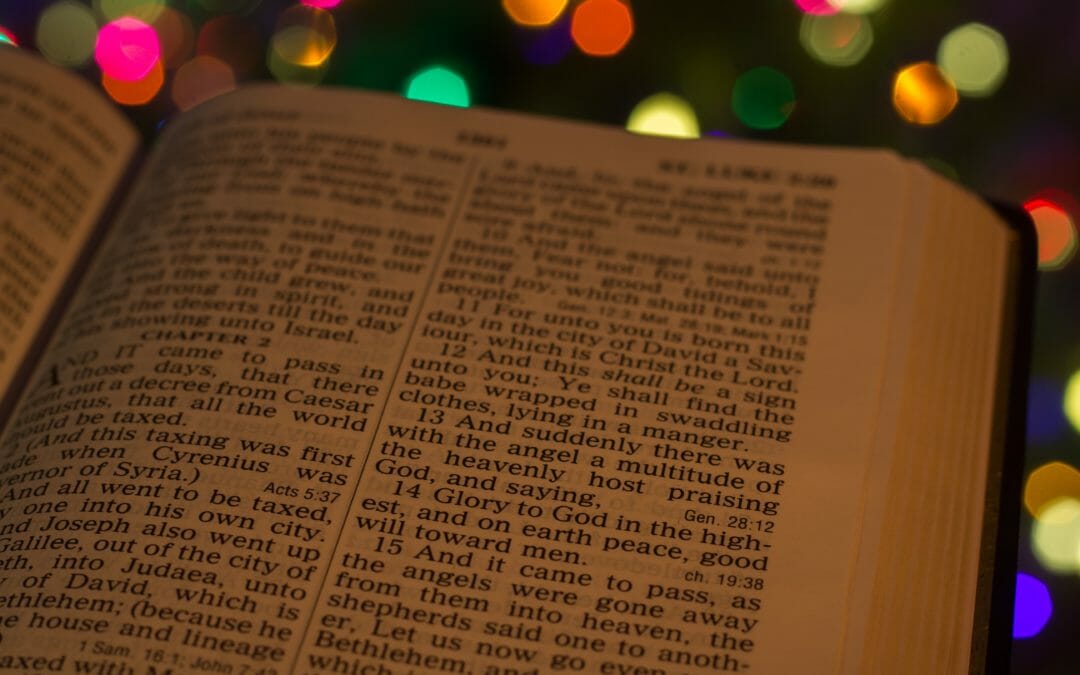
Readers Write: Truth
We asked readers to submit brief reflections on words associated with Advent. Here is a response on the word “truth.”

Pondering Christmas, from both sides
Life has its valleys and when joy becomes an illusion, Christmas easily intensifies emptiness. That emptiness is expected for, say, widows or widowers, for those in nursing homes or hospitals, but beware the walking wounded. They sit next to us in cubicles or on the bus—smiling every day without sharing the deep, hard realities of their lives—aching inside.

Readers Write: Hope
We asked readers to submit brief reflections on words associated with Advent. Here are two responses on the word “hope.”

Readers Write: Mercy
We asked readers to submit brief reflections on words associated with Advent. Below are three responses on the word “mercy.”

Advent—A different view
The world would look drastically different if persons were transformed not only to follow the teachings of Jesus but to live lives that resemble the life of Jesus. No longer would there be the question, when will Jesus return? The reality of Jesus’ coming would be seen in the actions and in the hearts of his disciples.

Readers Write: Glory
We asked readers to submit brief reflections on words associated with Advent. Here is a response on the word “Glory.”

The great gender reveal
I often wonder during every Advent season what “expecting” must have been like for Mary and Joseph after the annunciation of the angel Gabriel. In that dark, quiet, livestock stable that they found being the only available refuge in the days before the birth of Jesus – and while Mary already must have already started feeling some intermittent labor pains – in those moments, the authentic Christian root of the season of Advent was laid.

Readers Write: Humble
We asked readers to submit brief reflections on words associated with Advent. Here is a response on the word “humble.”
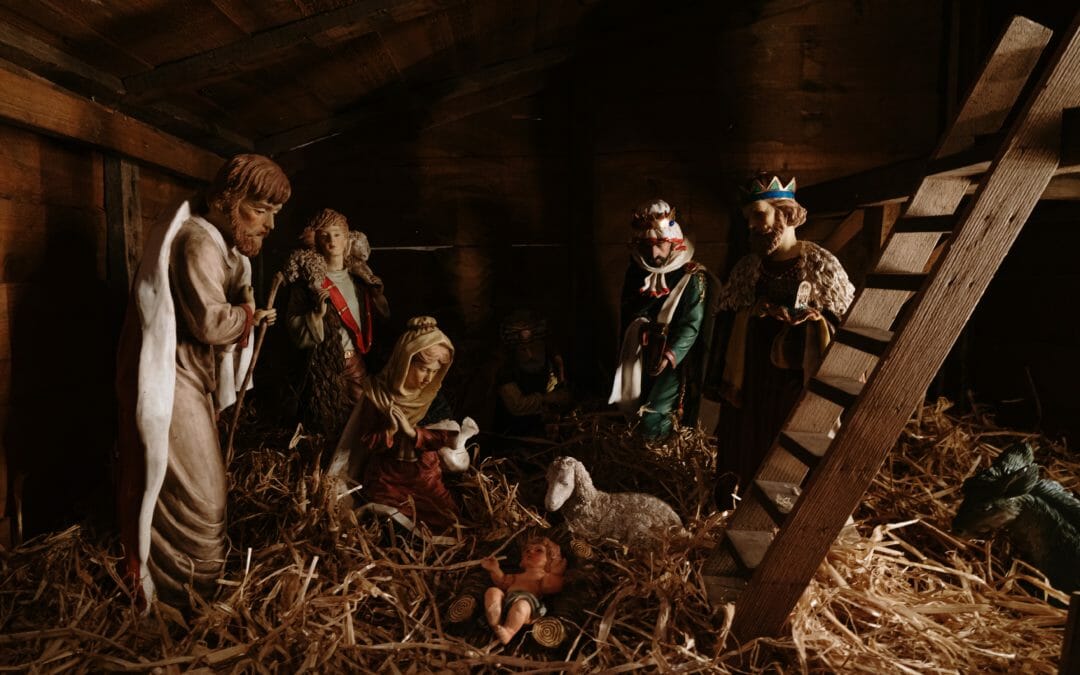
Celebrating Advent out of sight, out of mind
The actual biblical narrative of the birth of Jesus is nestled deep in obscurity. But what is clear is that this coming of God’s son, in a dark, forgotten corner of the world, was good news to those who also find themselves in life’s dark, forgotten corners.
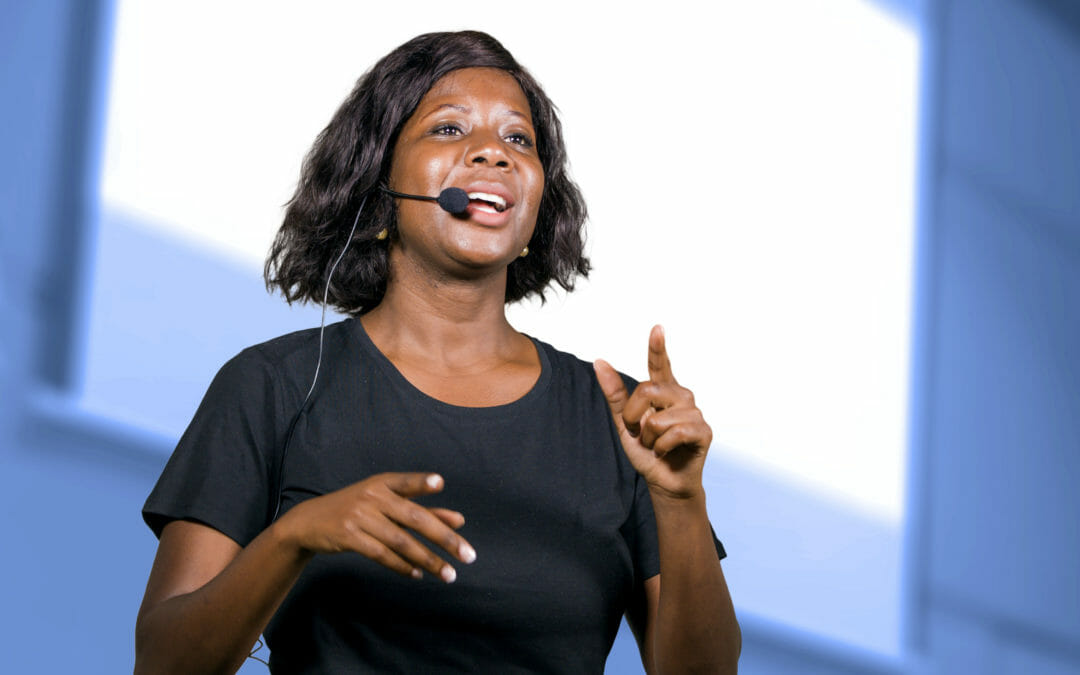
Unduly Unsupported: Black Clergywomen and the Baptist Church
The Black Church must let go of the fear that an increase in Black women’s leadership will lead to the demise and erasure of Black men’s leadership in the church. God’s Church needs all the Spirit-filled leaders that it can get working to fulfill the purpose that God has called them to. Holding Black women back from fulfilling their God-given purpose is an act of faithlessness and a denial of God’s power. Because God has called us – men and women – to serve, there is more than enough serving to do.

Readers Write: Scattered
We asked readers to submit brief reflections on words associated with Advent. Here is a response on the word “scattered.”

Faith in the in-between
As the Christmas season approaches, let us not forget the 400 years of waiting that the nation of Israel found themselves in, between the book of Malachi and the advent of Christ in Matthew. Just like the Israelites awaited a promise, we too await promises in our lives.

Readers Write: Ponder
We asked readers to submit brief reflections on words associated with Advent. Below are two responses on the word “ponder.”
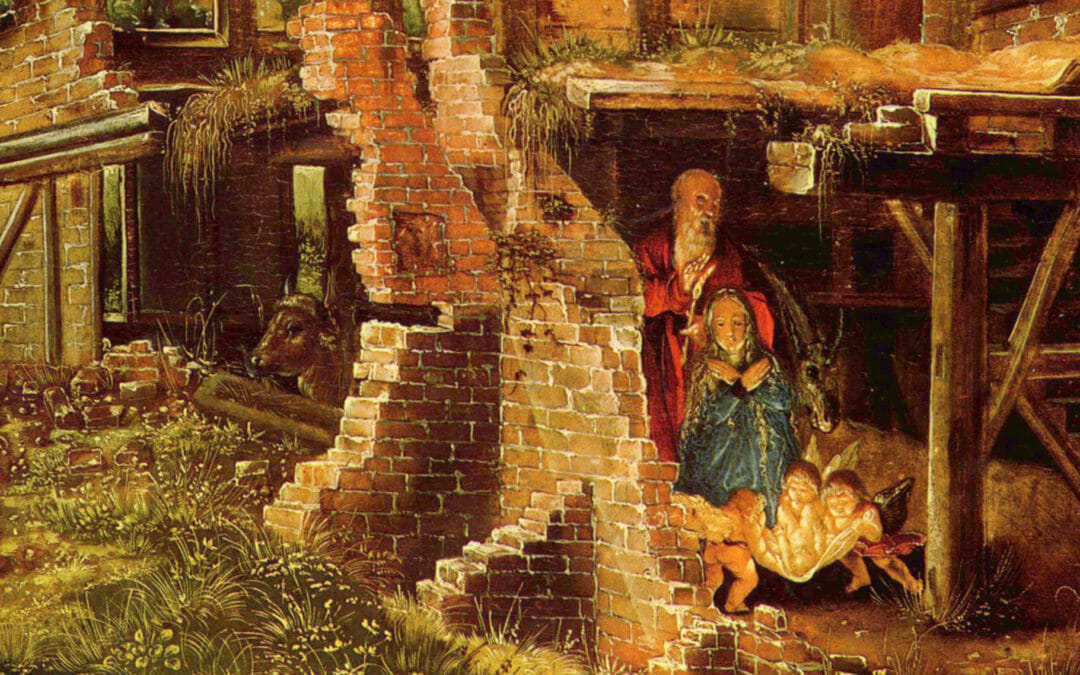
A time to ponder
How can we slow ourselves down and draw things out enough to reflect on the meaning of Christmas, when the season seems to be even more sped up than usual?

“Singing the (Advent) Jailhouse Blues”
The gospel plays out in a world well acquainted with the jailhouse blues, yet the Resurrection beckons with a different song, soaring above our longings and our loathing, above our angst in life and our cries in the night.

Good shall overcome
In God’s world and in God’s time, the darkness shall not overcome the light and good shall overcome some day. And so, we continue to sing with gusto our faith that “We shall overcome some day.”
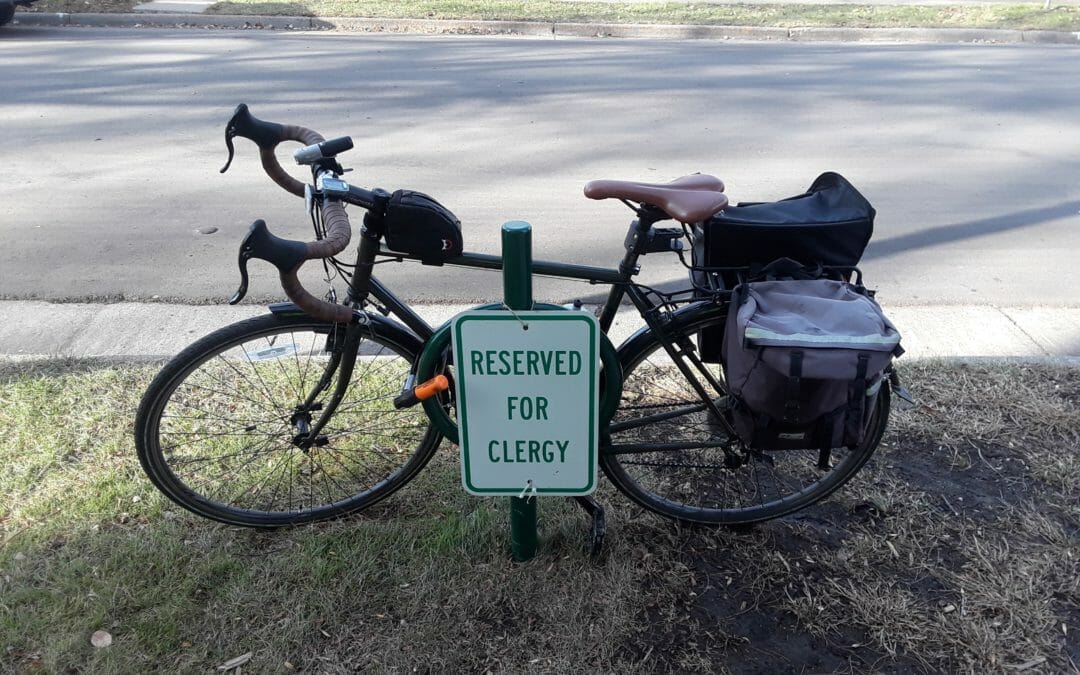
Christmas humor: Top 10 gifts to pastors
One evening several Christmases ago — not too long after I had resigned from my pastoral position — I started compiling a list of all the things I thought would make for a flourishing pastor-congregational relationship. As I looked over the list, I realized that I had created the perfect top 10 guide to giving gifts to pastors.

Waiting for Jesus
Advent reminds us that we continue to wait for Jesus’ coming. In the waiting, we must remain engaged in the work, humbly advocating for and serving all of God’s people, but particularly those who are marginalized. This is our calling. I pray that we are found faithful.
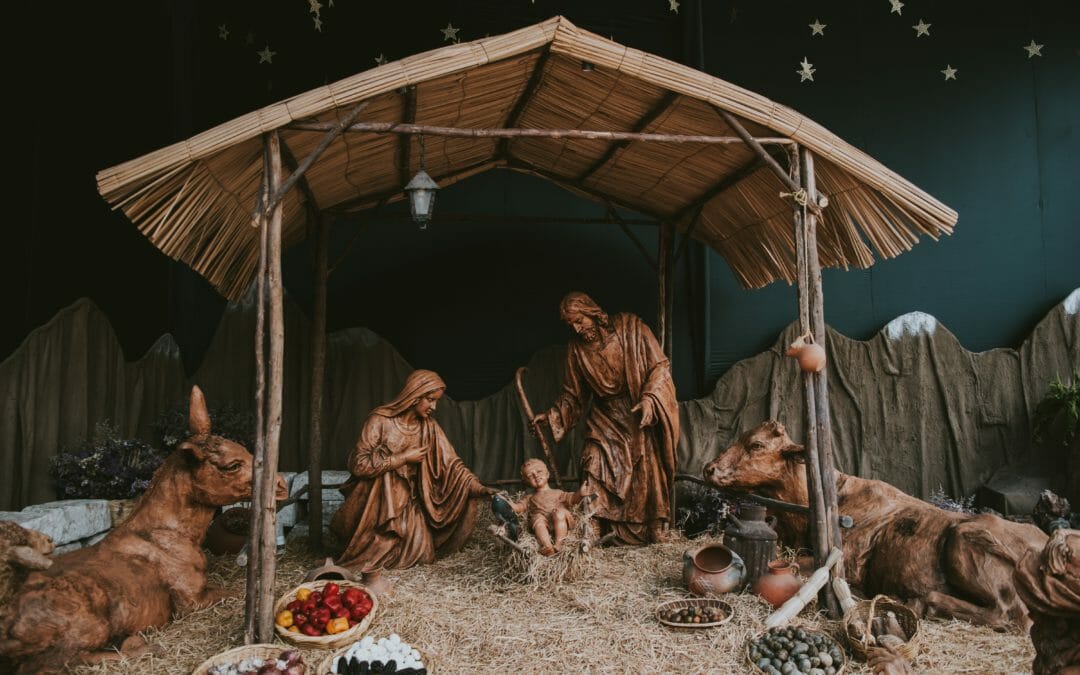
The grief of Advent
To understand Advent, we must reflect on Lent. Lent is the vigil that culminates in Easter. We would do well to treat Advent as a period of grief that culminates in Christmas.

Companionship: A response to social isolation and loneliness
Research shows “two in five Americans sometimes or always feel that their relationships are not meaningful and that they are isolated from others.” Companionship is a response to this social isolation and loneliness. A Companion is a person who shows kindness to those that they encounter; they are a neighbor to someone in distress.

From Victoria Peak to Lion Rock – Hong Kong Protests in search of “one country, two systems.”
As the protests continue all over Hong Kong, and actions are intensified each day, people begin to wonder what the solution would be to maintain “one country, two systems.” The Hong Kong protests are only one of many protests happening around the world. What should be our voice as a community of believers at this moment in history?

Keeping it purple—celebrating Advent as a penitential season
In the Western tradition, Advent is a season of anticipation and preparation for the celebration of Jesus’ birth and for his awaited return. Although liturgical scholars sometimes argue the point, Advent is commonly associated with purple as a penitential season. It is the ideal time for people and communities of faith to ponder how often we have denied Christ through our actions.

Waiting and resistance: Advent and Star Wars
Perhaps Star Wars and Advent can teach us that while we are entertained now with movies and Christmas preparations, we are part of something greater than what we see. We are called to resist the empire of this world, and prepare for the true kingdom, the beloved community of Christ.

From classism to community: Consider the poor, forgotten this Thanksgiving
In this Thanksgiving season, let us remember that the church has the power and responsibility to restore, empower and include the poor and forgotten. Prayerfully consider how to de-emphasize social class distinctions while learning instead to affirm and embrace the concept of the imago dei, the belief that all humans are made in the image of God.

What can you learn from Uncle Charlie at Thanksgiving? Practical tips to help you enjoy the holiday.
For better and for worse, your family through the generations has shaped you. Even the family members who push your buttons have strengths that have helped them navigate the world, even if their views and choices are radically different from your own. They may have something to teach you, if you are open to learn.
